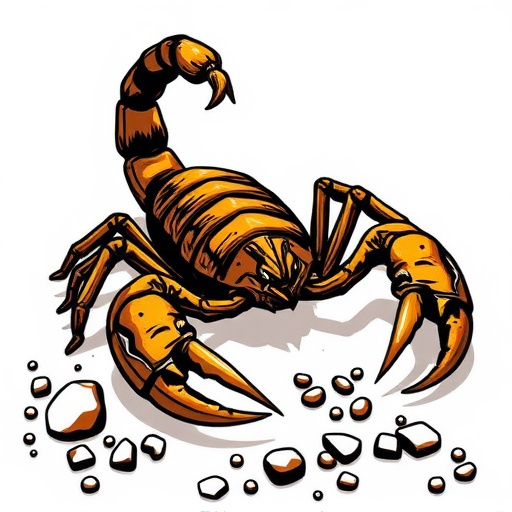Scorpion stings in Tucson range from mild to severe, with symptoms including pain, swelling, redness, fever, nausea, and difficulty breathing. Children, the elderly, and those with health issues are at higher risk. Prompt medical attention is crucial for severe reactions, highlighting the importance of understanding local scorpion control methods to prevent future encounters. Basic first aid knowledge, such as recognizing symptoms and administering over-the-counter pain relievers, enhances scorpion control Tucson efforts until professional help arrives.
In the desert regions, scorpion stings pose a significant health risk. Understanding these stings is crucial for effective treatment. This guide provides essential insights into managing scorpion bites, focusing on both immediate first aid and medical advice. If you reside in or visit areas where scorpions are prevalent, especially Tucson, learning these guidelines can make all the difference in mitigating symptoms and risks associated with scorpion control.
- Understanding Scorpion Stings: Symptoms and Risks
- Effective Scorpion Sting Treatment: First Aid and Medical Advice
Understanding Scorpion Stings: Symptoms and Risks

Scorpion stings can vary significantly in severity, depending on the species and individual sensitivity. In Tucson, where scorpion control is a priority due to the region’s native scorpions, understanding the symptoms and risks associated with these stings is crucial for effective treatment. Common symptoms include immediate pain, swelling, and redness at the site of the sting. In some cases, victims may experience fever, nausea, and difficulty breathing, especially if they have an allergic reaction.
While most scorpion stings are not life-threatening to healthy individuals, certain groups such as children, the elderly, or those with pre-existing health conditions are at higher risk. Prompt medical attention is recommended for severe reactions, and seeking professional advice on scorpion control Tucson can help prevent future encounters and ensure safer living environments.
Effective Scorpion Sting Treatment: First Aid and Medical Advice

In the event of a scorpion sting, swift and appropriate action is crucial for effective treatment. The first step is to remain calm and carefully observe the affected area. Scorpion stings can range from mild to severe, with symptoms including pain, swelling, and in some cases, nausea or difficulty breathing. If the sting is severe, seeking immediate medical attention is vital, especially for children, the elderly, or individuals with known allergies.
For minor stings, over-the-counter pain relievers can help manage discomfort. Washing the wound with soap and water is recommended to prevent infection. In Tucson, where scorpion control measures are essential, having a basic understanding of first aid for these stings can make a significant difference in managing symptoms until professional medical help arrives or when evacuating to a healthcare facility, especially for more severe cases that may require antivenom treatment.
When facing a scorpion sting, prompt action is key. Understanding the symptoms and risks is the first step towards effective treatment. For minor stings, first aid measures like cleaning the wound and applying ice can help alleviate pain. However, if you experience severe reactions or are unsure about the severity of the sting, seeking medical advice from professionals specializing in scorpion control Tucson is essential for ensuring safe and effective treatment. Remember, knowing how to navigate these situations can make all the difference in managing the discomfort and potential risks associated with scorpion stings.
